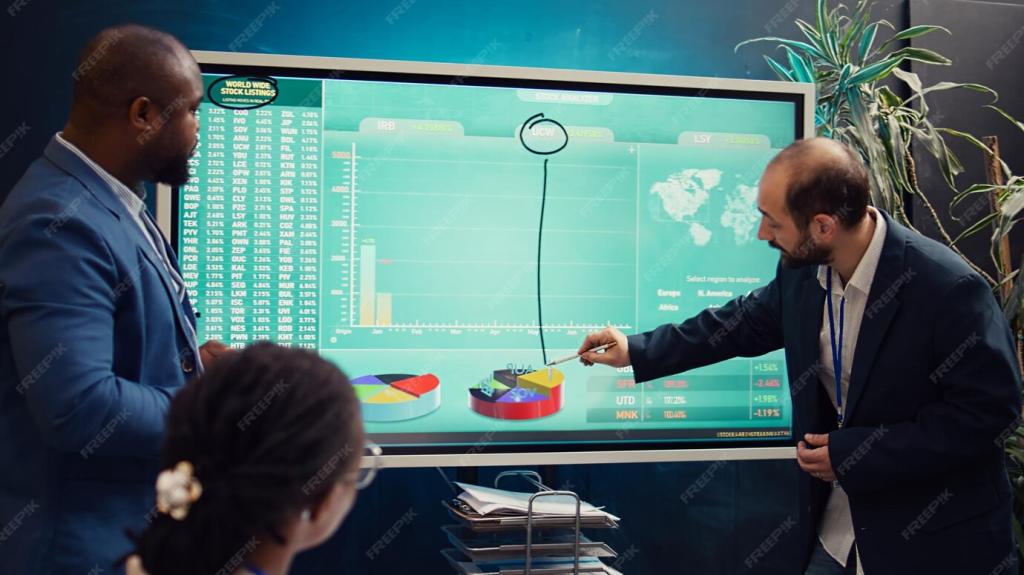Strategic Planning for Construction Industry Consultants
Welcome to our home base for bold, practical, and inspiring ideas. Today’s chosen theme: Strategic Planning for Construction Industry Consultants. Explore real-world strategies, lessons learned, and actionable tools designed to help consulting leaders navigate market shifts, win better work, and deliver lasting value. Join the conversation, subscribe for updates, and share your experiences to shape smarter strategy together.

Mapping the Market Landscape
Reading Demand Signals Across Sectors
Track public infrastructure pipelines, industrial reshoring, data centers, and healthcare expansions to spot early tailwinds. Consultants who quantify activity by geography, delivery model, and funding source build credible strategies and prioritize pursuits that compound long-term market share.

Vision, Objectives, and Metrics That Matter
A compelling vision for construction industry consultants should promise outcomes clients actually value: predictability, risk clarity, and certainty of delivery. Use vivid language and anchor it with proof points, so your team and clients rally behind a shared direction.

Segmentation That Guides Action
Segment clients by buying drivers: speed to mobilize, budget certainty, sustainability mandates, or regulatory complexity. This clarifies messaging and offer design. Strategic planning becomes practical when segments dictate proposals, case studies, and the pursuit pipeline structure.

Account-Based Go-to-Market
Choose a few flagship accounts and orchestrate outreach across thought leadership, pre-RFP workshops, and executive briefings. Build a rolling capture plan with influence maps and milestone commitments. Consistency beats sporadic bids in the consultant’s world every time.

Anecdote: The Preconstruction Breakfast
One firm hosted quarterly preconstruction breakfasts for a hospital system, sharing cost curves and inflation scenarios. When the RFP landed, the trust was already banked. Strategic planning turned small, repeated touchpoints into a decisive win and multi-year partnership.
Capacity Planning Meets Pursuit Strategy
Map your pipeline to staff availability and niche expertise. Identify bottlenecks early and recruit or partner before the surge. For construction industry consultants, synchronized resourcing transforms strategy from aspiration to consistent, on-time advisory delivery.
BIM/VDC and Data Fluency as Edge
Integrate BIM/VDC insights into advisory outputs: constructability reviews, change-order risk flags, and schedule stress tests. When your analysis quantifies risk and cost impacts, clients see concrete value. Strategic planning should budget for tools, training, and repeatable analytics.
Codify and Reuse Knowledge
Turn every project into reusable IP: checklists, risk libraries, and pricing benchmarks. A searchable knowledge base shortens proposal cycles, raises quality, and guards against turnover. Strategy protects momentum when institutional knowledge is curated and continuously improved.



Risk, Resilience, and Scenario Planning
Model a baseline, constrained funding, and accelerated infrastructure scenario. For each, stress-test revenue mix, staffing, and cash requirements. This discipline helps construction industry consultants pivot fast when the market tilts unexpectedly.
Risk, Resilience, and Scenario Planning
Define leading indicators—bid volume shifts, commodity price volatility, or permitting delays—and pre-commit actions when thresholds are hit. Avoid analysis paralysis. Strategic planning gains teeth when decisions happen automatically on clear signals.
Sustainability and ESG as Differentiators
01
Offer clients staged decarbonization roadmaps tied to capital plans and local codes. Convert abstract targets into prioritized projects with ROI ranges. Advisors who simplify choices become indispensable partners, not optional consultants.
02
Help owners pick frameworks and metrics that align with financing and stakeholder expectations. Build dashboards that tie energy, water, and waste to lifecycle cost. Strategic planning should mainstream these tools, not bolt them on at the end.
03
Curate case evidence: embodied carbon reductions, commissioning outcomes, and utility rebates captured. Use plain-language narratives alongside data. Clients remember stories backed by numbers—share yours in the comments so we can feature them in upcoming posts.
Financial Strategy and Pricing Discipline
Analyze contribution margins by sector, service line, and delivery method. Prune low-yield offerings and double down where you have edge. Strategic planning for construction industry consultants must explicitly shape the portfolio, not just chase volume.
Talent Strategy and Leadership Development
Skills for the Next Decade
Equip teams with risk modeling, facilitation, data storytelling, and contracts literacy. These skills elevate advisory quality and client confidence. Strategic planning should include a learning roadmap with budget, mentors, and milestones tied to real pursuits.


Culture of Candor and Curiosity
Invite dissent in pursuit reviews, celebrate learning, and document misses without blame. Psychological safety speeds improvement. Construction industry consultants thrive when hard truths surface early and are converted into better strategies confidently.
